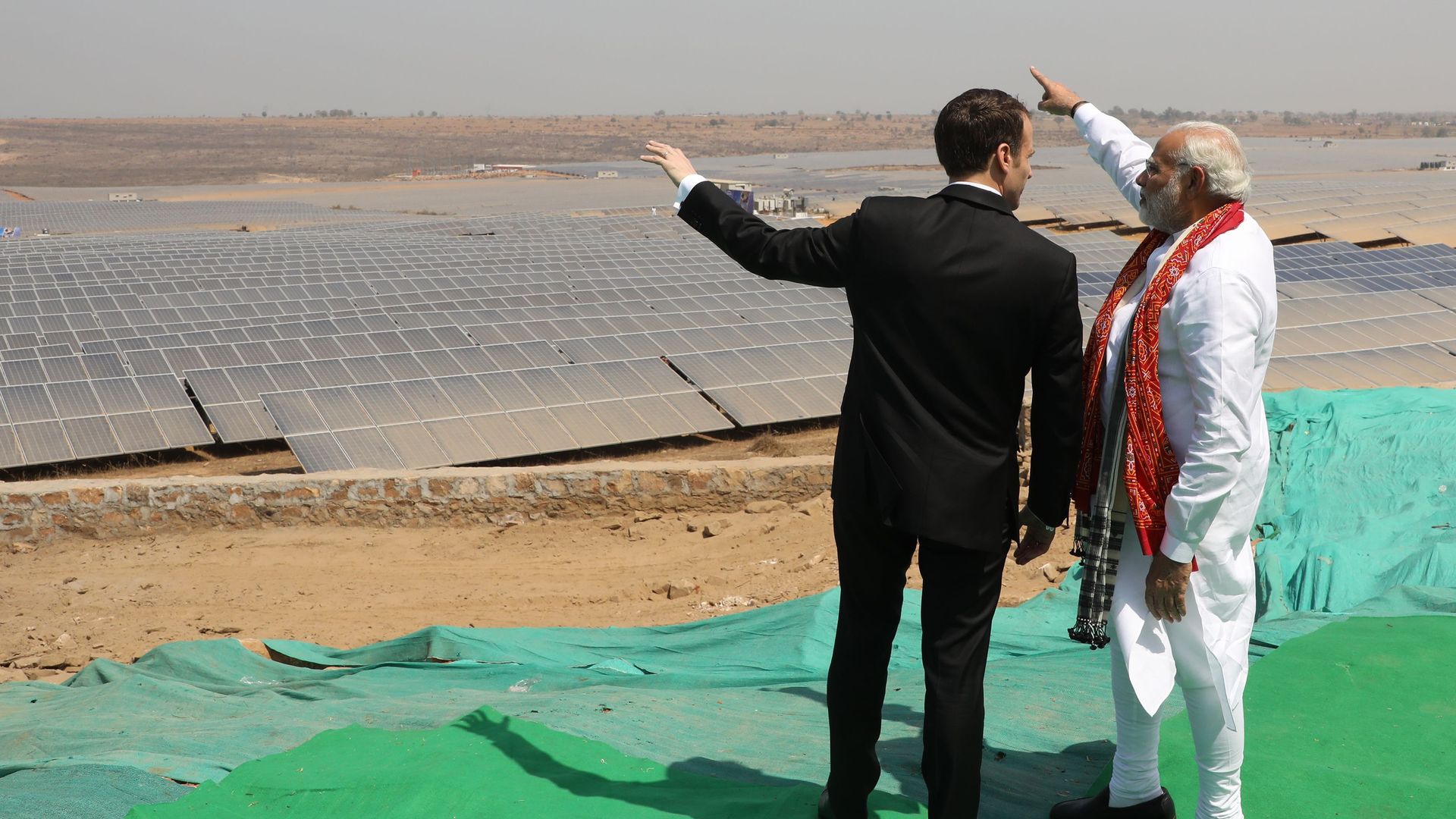Updated May 22, 2018 - Energy & Climate
Expert VoicesWith ambitious renewable energy targets, India on track for Paris
Add Axios as your preferred source to
see more of our stories on Google.

Indian Prime Minister Narendra Modi and French President Emmanuel Macron during the inauguration of a solar power plant in Uttar Pradesh state, India, on March 12, 2018. Photo: Ludovic Marin/AFP via Getty Images
